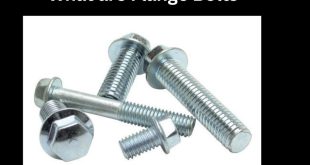Selecting a reliable plastic injection molding manufacturer is crucial for ensuring that your plastic parts are produced efficiently and meet your quality standards. Here’s a detailed guide on how to choose the right manufacturer and how to work effectively with them:
Key Factors to Consider When Choosing a Plastic Injection Molding Manufacturer
- Experience and Expertise
- Industry Experience: Opt for manufacturers with experience in your specific industry. They will be familiar with the unique requirements and challenges of your products.
- Technical Expertise: Look for manufacturers with strong technical capabilities, including experience with complex parts, various materials, and advanced molding techniques.
- Manufacturing Capabilities
- Machine Types and Technology: Ensure the manufacturer has modern injection molding machines, including hydraulic, electric, or hybrid machines, capable of producing your parts with precision.
- Tooling and Mold Making: Verify their ability to design and fabricate molds or their partnership with reliable mold makers. Evaluate their capacity to handle complex and large molds.
- Quality Assurance
- Certifications: Check for quality certifications such as ISO 9001 or ISO/TS 16949, which indicate adherence to international quality management standards.
- Quality Control Processes: Review their quality control procedures, including inspection, testing, and defect management practices.
- Material Expertise
- Material Options: Confirm that the manufacturer offers a variety of plastic materials that meet your specifications and performance requirements.
- Material Handling: Ensure they have proper handling and storage practices to maintain material quality and avoid contamination.
- Cost and Pricing
- Transparent Pricing: Obtain a clear and detailed cost breakdown, including tooling, production, material, and any additional services.
- Cost Competitiveness: Compare quotes from different manufacturers to ensure you receive competitive pricing without compromising quality.
- Production Capacity
- Volume Capabilities: Evaluate the manufacturer’s ability to handle your required production volumes, whether for small or large runs.
- Lead Times: Check their production lead times for mold creation, prototyping, and full-scale manufacturing to align with your project timelines.
- Customer Service and Support
- Communication: Assess the manufacturer’s communication practices to ensure they are responsive and proactive in addressing your needs.
- Technical Support: Verify that they offer technical support for troubleshooting and resolving production issues.
- Flexibility and Innovation
- Adaptability: Choose a manufacturer that can adapt to changes in design, material, or production requirements as your needs evolve.
- Innovation: Look for manufacturers who are up-to-date with the latest technologies and trends in injection molding, which can enhance your product’s quality and manufacturing efficiency.
- Reputation and References
- Customer Reviews: Research reviews and testimonials from other clients to gauge the manufacturer’s reputation and performance.
- References: Request references and case studies to validate the manufacturer’s experience and customer satisfaction.
- Ethical and Environmental Practices
- Sustainability: Consider the manufacturer’s commitment to environmental practices, such as waste reduction, recycling, and energy efficiency.
- Ethical Standards: Ensure they adhere to ethical labor practices and provide a safe working environment.
How to Work Effectively with a Plastic Injection Molding Manufacturer
- Define Project Specifications
- Detailed Requirements: Provide comprehensive design files, material specifications, production volumes, and any special requirements.
- Clear Communication: Set clear expectations regarding timelines, quality standards, and any specific needs for the project.
- Prototype Development
- Prototype Testing: Work with the manufacturer to develop and test prototypes before full-scale production. This helps identify and address any design or production issues early on.
- Feedback Loop: Provide detailed feedback on prototypes to ensure they meet your design and performance criteria.
- Monitor Production
- Regular Updates: Maintain regular communication with the manufacturer to monitor production progress and address any issues promptly.
- Quality Inspections: Conduct inspections and tests during production to ensure parts meet quality standards and specifications.
- Problem-Solving and Collaboration
- Issue Resolution: Collaborate with the manufacturer to resolve any production issues, such as defects or delays. Maintain a problem-solving approach.
- Continuous Improvement: Work together to identify opportunities for process improvements, cost savings, and product enhancements.
- Establish Long-Term Relationships
- Build Trust: Foster a strong working relationship with the manufacturer by maintaining open communication and a collaborative approach.
- Future Projects: Consider the manufacturer for future projects and explore opportunities for long-term partnerships and collaborative growth.
Summary
Choosing the right plastic injection molding manufacturer involves evaluating their experience, manufacturing capabilities, quality assurance practices, and cost-effectiveness. By providing clear project specifications, reviewing prototypes, and maintaining effective communication, you can ensure a successful manufacturing process that meets your quality and production requirements. Building a strong, long-term relationship with your manufacturer can lead to continued success and efficient production outcomes.
 Daily Blogger News Stay updated with the latest trends and insights. Your reliable source for daily updates and information.
Daily Blogger News Stay updated with the latest trends and insights. Your reliable source for daily updates and information.







